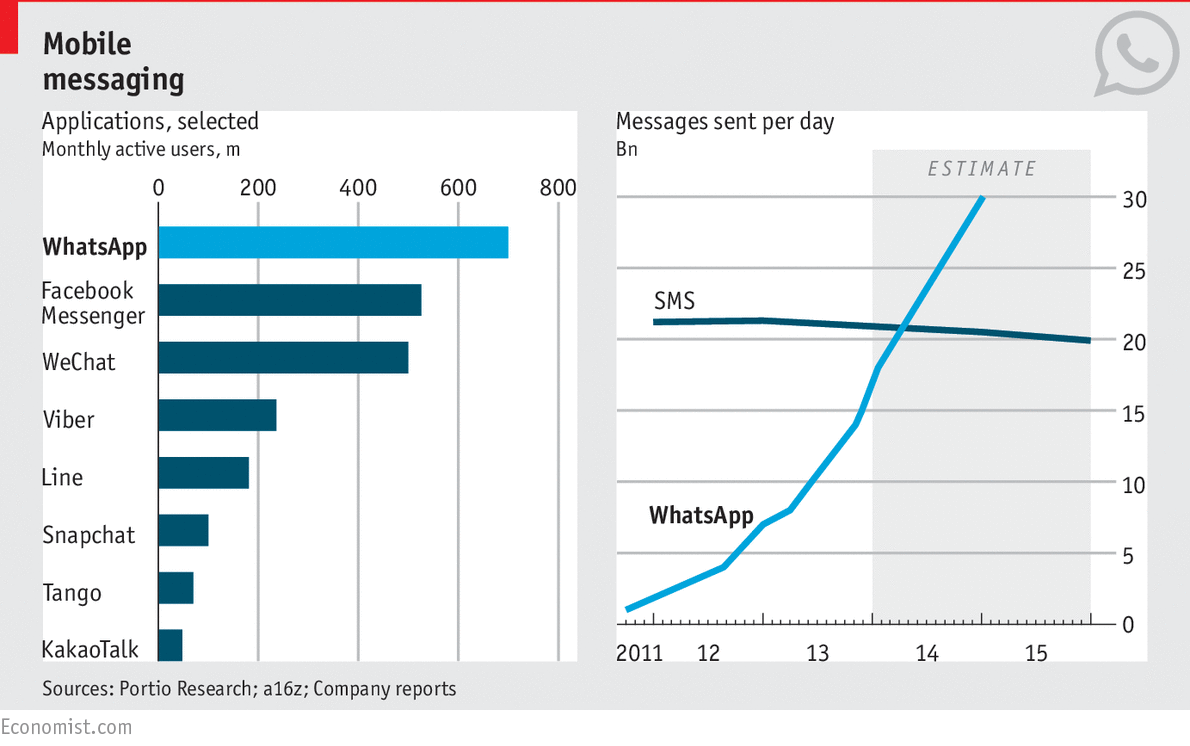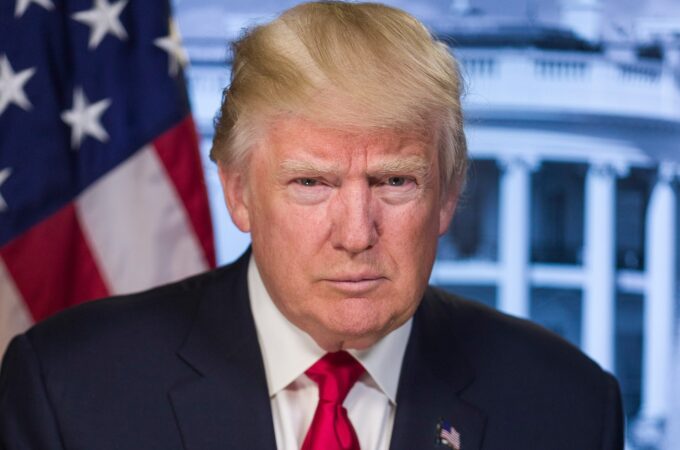
What’s up?
THE ECONOMIST: Messenger are arguably the most successful smartphone apps. The ten biggest collectively boast more than 3 billion accounts. WhatsApp, the leader, has 700m. The number of WhatsApp messages sent every day now exceeds the number of standard texts. Last year it handled more than 7 trillion messages, about 1,000 per person. But there is more to messaging apps than messages. At an event that starts today in San Francisco, Facebook, which owns WhatsApp, is expected to say that it will turn another of its apps—called Messenger—into a “platform”. That means others will be able to develop software and content for it (games; hotel bookings; tickets of all sorts). Facebook is following WeChat, the leading messaging service in China, and KakaoTalk, a South Korean messenger, which are already platforms of sorts. But it is also moving into territory occupied by Apple and Google and their respective smartphone operating systems, iOS and Android. Tech veterans may recall the “browser wars” of the late 1990s—the last time a successful programme, Netscape’s Navigator, tried to oust a dominant platform, Microsoft’s Windows. The messenger wars may be just beginning.





